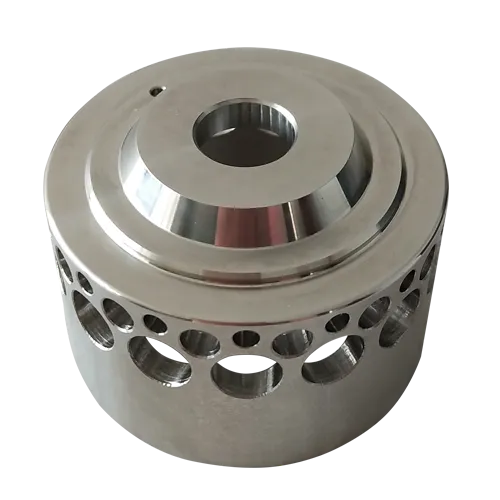Mobile:+86-311-808-126-83
Email:info@ydcastings.com
aluminium oil pan
The Significance of Aluminium Oil Pans in Automotive Engineering
In the realm of automotive engineering, every component plays a crucial role in the overall performance and efficiency of a vehicle. Among these components, the oil pan is often overlooked, yet it serves a vital purpose in the effective operation of an engine. As the industry evolves, so too do the materials used in these components. One notable advancement is the use of aluminum in the fabrication of oil pans, which presents several advantages over traditional materials like steel and cast iron.
Lightweight Design
One of the most significant benefits of aluminum oil pans is their lightweight design. In the quest for improved fuel efficiency and performance, car manufacturers are increasingly focused on reducing the overall weight of vehicles. The weight savings provided by aluminum oil pans can contribute to better fuel economy and enhanced handling characteristics. By replacing heavier materials with aluminum, automotive engineers can achieve a more balanced vehicle, which is particularly important in high-performance and racing applications where every ounce counts.
Corrosion Resistance
Aluminum naturally offers excellent corrosion resistance properties. In an automotive environment, oil pans are exposed not only to engine oil but also to external factors such as moisture, road salt, and various chemicals. Traditional materials like steel are prone to rust and corrosion over time, leading to structural damage and oil leaks. The inherent resistance of aluminum to corrosion extends the lifespan of the oil pan, reducing the need for repairs or replacements and enhancing vehicle reliability.
Heat Dissipation
Another critical aspect of an oil pan's role is heat dissipation. The engine generates a significant amount of heat during operation, and the oil pan must effectively dissipate this heat to maintain optimal oil temperatures. Aluminum, with its excellent thermal conductivity, allows for quicker heat dissipation compared to other materials. This property helps maintain the engine oil at a stable temperature, ensuring that it retains its lubricating properties and minimizes the risk of thermal degradation. Effective heat management is crucial for preventing engine damage and enhancing overall vehicle performance.
aluminium oil pan

Design Flexibility
Aluminum oil pans also offer greater design flexibility. The malleability of aluminum enables engineers to create complex shapes and forms that cater to the specific needs of different engine designs. This flexibility allows for oil pans that provide optimal functionality, accommodating various components like baffles and oil pickup tubes. Custom-designed oil pans can help improve oil circulation and prevent issues such as oil starvation during high-performance driving conditions.
Cost Considerations
While aluminum oil pans come with numerous advantages, the cost factor cannot be ignored. Generally, aluminum components can be more expensive to produce than their steel or cast iron counterparts. However, the long-term benefits, such as reduced maintenance costs, improved fuel economy, and enhanced performance, often outweigh the initial investment. Many manufacturers are willing to embrace these costs for the sake of quality and reliability, particularly in high-performance or luxury vehicles.
Sustainability
In today's automotive landscape, sustainability has become paramount. The production of aluminum is often associated with lower carbon emissions compared to traditional steel production processes. Furthermore, aluminum is 100% recyclable, meaning that end-of-life oil pans can be repurposed without significant environmental impact. This commitment to sustainability resonates with environmentally conscious consumers and manufacturers alike, contributing to the automotive industry's broader efforts to reduce its ecological footprint.
Conclusion
In conclusion, aluminium oil pans represent a significant advancement in automotive engineering. Their lightweight design, corrosion resistance, superior heat dissipation, design flexibility, cost considerations, and sustainability make them an attractive choice for modern vehicles. As the automotive industry continues to innovate and prioritize performance, efficiency, and environmental responsibility, the adoption of advanced materials like aluminum will likely become increasingly prevalent. Whether in everyday cars or high-performance machines, aluminum oil pans play a crucial role in ensuring that engines run smoothly and efficiently, supporting the demands of both drivers and the environment in the 21st century.
-
Why Should You Invest in Superior Pump Castings for Your Equipment?NewsJun.09,2025
-
Unlock Performance Potential with Stainless Impellers and Aluminum End CapsNewsJun.09,2025
-
Revolutionize Your Machinery with Superior Cast Iron and Aluminum ComponentsNewsJun.09,2025
-
Revolutionize Fluid Dynamics with Premium Pump ComponentsNewsJun.09,2025
-
Optimizing Industrial Systems with Essential Valve ComponentsNewsJun.09,2025
-
Elevate Grid Efficiency with High-Precision Power CastingsNewsJun.09,2025











